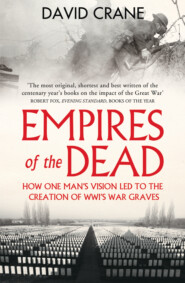По всем вопросам обращайтесь на: info@litportal.ru
(©) 2003-2024.
✖
Witnessing Waterloo: 24 Hours, 48 Lives, A World Forever Changed
Настройки чтения
Размер шрифта
Высота строк
Поля
The Billy Ruffian
There was a touch of rain in the air and the breeze was fresh as the seventy-four-gun HMS Bellerophon shook a reef out of its top sails and fell in with Myrmidon and Eridanus. Within the shelter of Rochefort’s harbour just over the horizon two French frigates lay at anchor, and if history and the British sailor were anything to go by, that was precisely where they were going to stay, safely bottled up in port by the Royal Navy until the war was over.
Blockading was not romantic or exciting work, it was not the stuff of reputations or the road to riches, but for the navy and ships such as the Bellerophon – the ‘Billy Ruffian’ – it was what they had been doing for the last twenty years. The glamour of the service might belong to the frigate captains who had made household names of the Speedy or Imperieuse, but it was here on blockade duty off the coast of Europe, from the Baltic down to the Mediterranean, year after year, in all weathers, summer and winter, night and day, that those fighting and sailing skills had been honed that had strangled the continent’s trade and won the war for Britain.
The Nelsonian man o’ war was no more narrowly British than was Wellington’s army – you could have found English, Scottish, Irish, Americans, Canadians, Danes, Swedes, Spaniards, Portuguese, Puerto Ricans and Venetians fighting together in the same floating Babel – though it would have been an uphill task to persuade the British public of that. For a thousand years the sea had played a crucial role in the island’s story, and a golden age of victories that left Britain in undisputed command of the oceans and of her own destiny had given the British tar and man of war a place in its heart no regiment or Tommy Atkins could rival.
For all the hatred of the press gangs, and the resentments of the merchant fleets robbed of manpower, the British loved the Royal Navy in a way that it had never loved the army. Over the past century the British soldier had fought and beat the French from Quebec to Pondicherry, but while victory at Blenheim or Ramillies or Minden might command an ode or add to the invincible conceit of John Bull, they were not triumphs that were bound up with the security, history and identity of an island race in the way that were the navy’s.
It was not a mere matter of sentiment, either, because nobody looking out to sea at six o’clock this morning, to where the greatest East India fleet ever assembled lay spread across the Downs, could forget its role in the prosperity that had sustained Britain through two decades of war. For more than twenty years the navy had convoyed the world’s trade across the face of the globe, and from Liverpool to Gravesend – from the Isabella and Aimwell just arrived from Surinam and Barbados with their cargoes of sugar, cotton, coffee, aloes, ginger and tamarind, to the Heinrich from Danzig, the Frau Anna from Stockholm, the Jason from Memel and the Frederick from Hamburg – the country’s great ports and quaysides rang to the same commercial tune that the navy had made possible. ‘The following account of one pound weight of manufactured cotton strikingly evinces the importance of that trade to Great Britain,’ Exeter’s subscribers to The Alfred could have read in the latest edition this Sunday; ‘there was sent off to London, lately, a small piece of muslin, about one pound weight, the history of which is thus related; it was come from the East Indies to London; from London it went to Lancashire, where it was manufactured into yarn; from Manchester it came to Paisley, and there was veined; afterwards it was sent to Dumbarton, where it was hand sewed, and again brought to Paisley, whence it went to Glasgow and was finished, and from Glasgow it was sent per-coach to London.’
The British loved this drum-roll to their island’s prosperity, loved the rattle of figures – the three years from picking to warehouse, the 5,000 miles by sea, the 920 miles by land, the 150 people employed in a single pound of cotton, the 2,000 per cent profit – and knew that this was how they had brought Bonaparte to his knees. Since the days of the Younger Pitt the country had been financing her continental allies, and as the Prussian, Russian and Austrian armies of the Seventh Coalition again marched against France on British gold, Britons could look out to sea and know that it was a war that their efforts and their industry would sustain as long as was necessary.
The Robert Quayle from St Domingo, carrying cotton, sugar, tea, coffee and mahogany; the Unicorn from Demerara with its rum and molasses; the Sally from Trinidad with its lime juice and indigo; the Vestal from New York with cotton and flaxseed, the Integrity from Charleston; they were all in Liverpool this Sunday. Before the day was out the Jackson would sail from Gravesend for Oporto and the Minerva for Gibraltar and the Anna for Riga and the Acorn for St Petersburg, and for as long as most people could recall it was the navy that had controlled these sea channels. It had kept open the Great Belt and the Baltic, it had supplied Britain’s armies in Spain with its specie from South America and its grain; it had suppressed the coastal trade of Europe and turned the Mediterranean into a British lake. There had been reverses against the Americans – though they were being quietly massaged away – and there had been little to brag of since Trafalgar but for the public and sailor alike a British warship was the British character in action and the Royal Navy officer the incarnation of everything that made Britain innately superior to her enemies. Over the last few years the victories of Wellington’s armies in Spain had gone some way to redressing the balance, but if the young Romantic, Thomas De Quincey, might thrill to the tragic heroics of the 23rd Dragoons at Talavera, it was in the virtues of the meritocratic, professional navy and not of the hunting field – resilience, discipline, self-reliance, skill, initiative, intelligence and patriotism – that an industrialising, entrepreneurial, thrusting, inventive, self-confident, stubbornly independent nation liked to see herself reflected.
It was a seductive idea, and one that would only grow and mutate with the century, and if there was no more truth in it than in most other national myths, the mere assumption of superiority had given the navy a psychological advantage that turned myth into a self-fulfilling prophecy. Over the last two decades the Bellerophon had played its part in some of the greatest victories of the war, and no veteran of the Nile or Trafalgar or the Glorious First of June – still less any French sailor skulking out of sight in Rochefort – would have had a moment’s doubt of the outcome should the French squadron ever venture out from the safety of the Basque Roads.
There were fortunes to be made in the navy out of prize money too, and if Jane Austen’s Sir Walter Elliot might lament it as the death knell of all rank and society, a commercial nation of shopkeepers knew what a wonderful lubricant it could be. During the course of the war the corruption of the Admiralty prize courts had been a standing grievance among fighting sailors, but a rich ship was a happy ship and the lure of the prize money had successfully woven patriotism and greed into a kind of symbiotic double-helix that had printed aggression and daring into the DNA of every ambitious officer.
In a culture and navy of this kind, simultaneously romantic and mercenary, it is probably no coincidence that so many of the navy’s leading captains were Scottish, and Frederick Maitland of the Bellerophon was only ordinary in the sense that there were so many like him. At the age of almost thirty-eight, he was no longer the brilliant young frigate captain of the popular imagination, but with his thin clever face, long nose and high cheekbones, he might have been the archetype of the Nelsonian officer, the kind of sailor – and the kind of face – that would have again made Sir Walter and his barber despair of the ravages that long years at sea could inflict on a man’s complexion.
With the Maitland appearance (the family were not known in Edinburgh society for their looks) came the aristocratic Maitland connections, though even a boy of his background still had to make his own way in Nelson’s navy. From the seventeenth century the sons of the gentry had been entered into the service from a very early age, and while a junior officer like the young Wellington – Arthur Wesley as he then was – could happily trade commissions in and out of half a dozen regiments before he heard a shot fired in anger, the Frederick Maitlands of the navy had to learn and earn their promotions the hard way.
Maitland had first seen battle as a midshipman during the French Revolutionary Wars at the Glorious First of June, and the next dozen years were spent in almost continuous fighting up and down the French and Spanish coasts. In 1799, he had been chased down and captured in the cutter Penelope, but that had been the only setback in a charmed career that had brought him a rich haul of prizes, prize money, votes of thanks and ultimately, in March 1815, on Bonaparte’s escape from Elba, the command of the old Billy Ruffian.
The war had been good to Maitland, but as he prepared to join Sir Henry Hotham’s blockading squadron off the French coast he could not have dreamed that the best was yet to come. The fighting now belonged to the army and not the navy and there would have seemed little chance of either profit or excitement. On 24 May, however, the Bellerophon sailed from Cawsand Bay in Cornwall, and so it was that in the early hours of 18 June, in light winds and ‘small rain’, Captain Frederick Maitland found himself again in the Basque Roads, with La Rochelle and the Ile de Rey to the north and the great opening to the Gironde to the south. Between them lay the estuary of the Charente and Rochefort and the French squadron he had been despatched to watch. They were waters he knew well, and as the Bellerophon hove to for the captain of the Ulysses to come aboard, it would have been odd if his mind had not gone back to the last time he had been here, in the April of 1809. And odder still if he had not thought of another Scottish sailor, the most famous fighting captain of them all, ‘Le Loup de Mer’, as the French called him, to whose help he had gone that day.
7 a.m. (#ua0d38e15-c319-53ca-86de-1325a3a073d6)
Le Loup de Mer
On the south side of the Thames, at the junction of Southwark’s Borough Road and Blackman Street, Thomas Cochrane was beginning the last forty-eight hours of his year-long sentence in one of the sadder curiosities of early nineteenth-century London. A few hundred yards to the north-west a great gallows beam high on the roof marked the entrance to Horsemonger Lane’s Surrey gaol, but King’s Bench prison dealt only in the small change of human misery and humiliation – in the debtors and bankrupts and their wives and children who lived here on the crumbling edges of society and on whatever their friends and families could provide to keep life and soul together.
A cell in the King’s Bench – fifteen feet by ten and containing three beds – was the first room that Leigh Hunt could recall and its barrack-like corridors, filled with the laments ‘of aged and unhappy parents’ and weeping wives, his earliest introduction to the geography of London. Less than half a mile to the north, Dickens’s Marshalsea might provide copy for a lifetime of shame, but if one was looking for a genuine microcosm of the world’s greatest metropolis, a sink for all the deluded hopes, aspirations and ambitions that a voracious, commercial and imperial capital generated and disappointed, then the King’s Bench and its floating and permanent population of debtors was the place.
It was not like Newgate to the north of the river, nor Horsemonger Lane, nor even the Marshalsea, and with its spacious parade and its speciously handsome Georgian buildings, its tap rooms, coffee house, marketplace and games of rackets, its atmosphere lay somewhere between an open prison, a refuge centre and a college for which the only entry qualifications were failure and ill-fortune. For the payment of a fee a debtor could enjoy the freedom of the prison ‘Rules’, an area of three square miles surrounding the gaol; but the immense spike-topped wall was a reminder that when night fell, and the last visitor had left and the only sounds were the cries of ailing babies, and the only view that of a blind wall just feet away, the King’s Bench was still a prison.
Sometime in the middle hours of a March night three months earlier, when the watchman was at the farthest point of his prison rounds, a prisoner had paused in the window of his fourth-storey room with a length of rope looped around him and another shorter length in his hand. The fourth floor of the building was almost on a level with the top of the prison wall, and for a sailor in the prime of life a moment’s work was enough to throw a running noose over a spike, and another to swing his six-foot-two-inch frame out of the window and, hand-over-hand, across the twelve-foot gap between sill and outer wall.
The prison wall was thirty-five feet high, and the narrow well beneath pitch-black, but once across he hauled himself on to the top and perched precariously between spikes while he secured the second rope to the ironwork. He had arranged with an old servant of his a safe house somewhere in the shadow of the prison wall below him, and had lowered himself nearly halfway down when his makeshift rope, smuggled into the prison in pieces, snapped and sent him crashing the last twenty feet to the ground.
The bruised and unconscious escapee was Thomas Cochrane, better known as Lord Cochrane, demagogue rabble-rouser, inventor, Member of Parliament, heir to the 9th Earl of Dundonald, and the most brilliant, ungovernable and imaginative naval captain the Revolutionary and Napoleonic Wars had produced. In the previous August, Cochrane had been sentenced to the stocks, a £1,000 fine and a year in the King’s Bench on a charge of fraud, but his troubles with the authorities had really started – if they did not start with his birth – on an April day five years earlier when he had joined Frederick Maitland and the rest of Admiral Gambier’s blockading force keeping an enemy fleet bound for the West Indies bottled up close to Rochefort in the inner Aix Road.
Cochrane knew these coastal waters and shore defences intimately, and with a record for courage and unorthodoxy that stretched back to the first years of the war, had been despatched by the Admiralty in the Imperieuse to mastermind a fireship attack on the French fleet. As a junior captain he knew well enough that his arrival would ruffle the feathers of the more senior captains in the fleet, but for once in his turbulent life he had the authority of the Admiralty behind him, and on the night of 11 June a mixed flotilla of fireships and bomb-vessels under his command had slipped off into the dark of a moonless night towards the coast and the double lines of the French fleet anchored under the guns of the Ile d’Aix.
Вы ознакомились с фрагментом книги.
Приобретайте полный текст книги у нашего партнера:
Приобретайте полный текст книги у нашего партнера:











